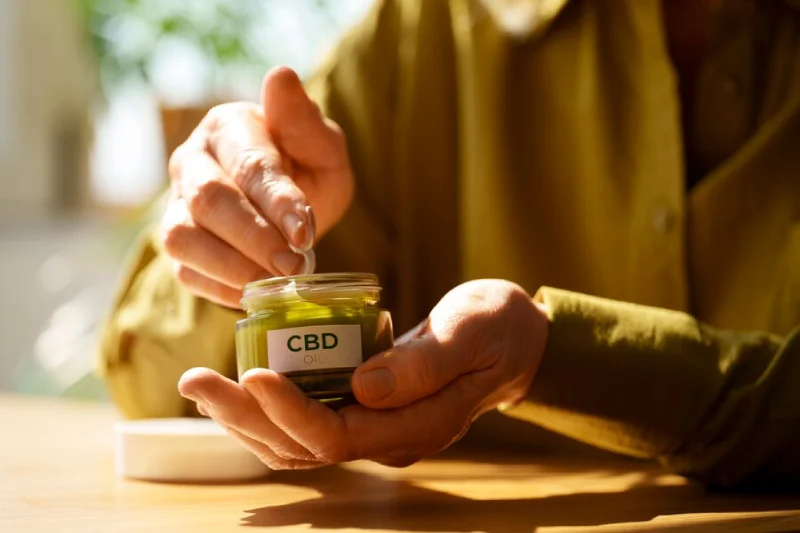Key Takeaways
- Cannabidiol (CBD), a substance derived from cannabis plants, provides therapeutic advantages while lacking the psychoactive properties associated with THC.
- Understanding CBD’s various uses and forms, from oils to edibles, is essential.
- Consulting with healthcare professionals can enhance the safe integration of CBD into your wellness regimen.
Understanding CBD
CBD, or cannabidiol, is a fascinating compound derived from the cannabis plant. Over recent years, it has garnered significant attention in health and wellness arenas due to its non-psychoactive properties and potential therapeutic benefits. Unlike THC, another compound in cannabis, CBD does not induce any mind-altering effects. This renders it particularly appealing to those who wish to enjoy the health advantages of cannabis while avoiding the psychoactive effects typically linked to its use. The increasing popularity of CBD can be observed in many regions, such as CBD in Washington, DC, where many people embrace its therapeutic potential. CBD may offer relief for various conditions, including anxiety, depression, and chronic pain, making it an essential element in many healthcare treatments.
How CBD Works
The efficacy of CBD hinges on its interaction with the endocannabinoid system (ECS) in the human body. The ECS is a complex regulatory system that influences various physiological processes, including mood regulation, pain perception, inflammation control, and immune response. CBD primarily engages with two receptor types, CB1 and CB2, facilitating the promotion of balance, or homeostasis, within the body. Through the modulation of these receptors’ activity, CBD has the potential to restore equilibrium and may offer therapeutic relief for a range of conditions. This potential has been investigated through multiple scientific studies, with promising results published by reputable sources such as the National Institutes of Health, offering insights into how CBD may be used to support health and wellness.
Different Forms of CBD
CBD is available in many forms, each catering to different needs and preferences. These include oils, tinctures, edibles, capsules, and topicals. Understanding and choosing the appropriate form for one’s health goals is critical to maximizing the benefits of CBD. As consumers seek tailored approaches to health solutions, the diverse forms of CBD provide valuable versatility to fit various lifestyles and therapeutic needs.
- CBD Oils and Tinctures: CBD oils and tinctures shine brightly in wellness products, celebrated for their straightforward use and remarkable flexibility. These liquid extracts provide a fast-acting solution that can be administered directly under the tongue and quickly enter the bloodstream for swift effects. Alternatively, you can blend them into your favorite foods and beverages, creating a delightful experience that allows the soothing properties of CBD to unfold gradually. This rapid onset of effects is particularly appealing for those seeking immediate comfort from acute pain or sudden anxiety surges.
- Edibles: Edibles offer a delightful and versatile avenue for enjoying CBD, transforming everyday snacks into enjoyable wellness experiences. Imagine savoring a chewy gummy bursting with flavor or indulging in rich, silky chocolate infused with calming hemp extract. Thanks to the slow digestion process, these treats provide a discreet way to consume CBD and deliver a prolonged effect. As your body metabolizes the edibles, CBD is released more gradually, ensuring sustained relief that is especially beneficial for managing chronic conditions over an extended period.
- Topicals and Capsules: Beyond oils and edibles, CBD presents in luxurious topical creams and convenient capsules. The rich, soothing textures of topical products—creams, lotions, and balms—glide effortlessly over the skin, immediately targeting inflammation and localized discomfort. Picture applying a warm balm that brings a soothing sensation to tired muscles or inflamed joints. Meanwhile, capsules offer the precision of a measured dose, effortlessly becoming part of your daily routine. They are popular for those who desire consistency and reliability in their wellness journey, seamlessly blending into your lifestyle.
Potential Benefits of CBD
CBD is increasingly acknowledged for its potential to tackle a range of health issues. Research indicates that it may help alleviate chronic pain and reduce inflammation, contributing to its popularity among those looking for natural remedies. Additionally, many people turn to CBD to relieve anxiety, as it may promote relaxation without the psychoactive effects associated with THC. One notable advantage is its ability to help manage sleep disorders, enabling individuals to attain an improved quality of rest.
Research continues to explore CBD’s efficacy in treating more severe medical conditions. One of the most notable areas of study is its impact on epilepsy, with some findings indicating promising results. Certain CBD-based medications have already been approved for treating epilepsy, offering hope for those with drug-resistant seizures. Researchers are also investigating CBD’s possible role in addressing neurological disorders, further expanding its potential medical applications.
Although there is increasing support for CBD, more comprehensive clinical trials are essential to confirm its efficacy thoroughly. While user anecdotal evidence is abundant, scientific validation remains crucial for its broader acceptance in the medical field. Rigorous studies will help determine the appropriate dosages, potential side effects, and long-term impacts of CBD use. With continued research and regulatory approval, CBD could become a widely accepted treatment alternative for various health conditions.
Considerations Before Using CBD
For those considering adding CBD to their health routine, it’s crucial to approach it with an informed mindset. Consulting a healthcare professional is essential, especially if taking other medications. CBD interacts with liver enzymes that metabolize many drugs, which can either enhance or reduce their effects. This may require adjusting dosages or timing to avoid unwanted side effects.
To use CBD safely and effectively, seek expert advice to navigate potential interactions and ensure the right approach for your needs. Choosing high-quality, third-party tested products is also key to minimizing risks and maximizing benefits. A well-informed approach helps users integrate CBD into their wellness regimen with confidence.
Final Thoughts
CBD presents a promising frontier in the world of alternative medicine, providing a natural option for those exploring therapeutic remedies devoid of psychoactive effects. As ongoing research continues to uncover CBD’s vast benefits, consumers must stay informed via reputable sources such as updated medical and scientific resources and consult with healthcare professionals to ensure its safe integration into their wellness strategy. The expansive potential of CBD makes it a valuable asset in the pursuit of improved health and quality of life.




